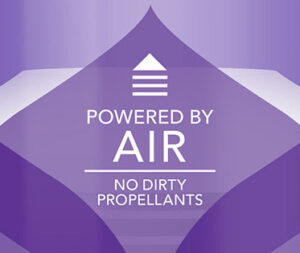Written on: November 1, 2014 by SprayTM


Method Target store display
The technical and commercial development of plastic aerosols has been ongoing for several years, with the Plastic Aerosol Research Group (PARG), an entity within the Consumer Specialty Products Association (CSPA), taking the lead. PARG has been supported by a long list of suppliers and marketers who see this emerging marketplace as one which will expand the market for pressurized products and essentially make for a “bigger tent”. The thinking here is that the more and varied types of spray packages there are, the more applications there will be in the pressurized product format. This variety will only serve to make the total market for aerosols, now estimated at 14 billion units globally, grow larger.
If new technologies are as sustainable and environmentally friendly as they say, the more the better. Clearly, there is consumer demand for products that are Green and sustainable. In fact, many companies in the aerosol marketplace, suppliers and brand owners alike, endeavor to increase recycling and recyclability of their products, make ingredients transparent for both consumer and environmental health, and are very proud of their sustainability efforts.
It is with all of this in mind that we report on the new air freshener from Method on page 10. Recently launched at Target stores, the Method air freshener is packaged in “100% recycled plastic,” according to the company website. What makes this product of particular interest is the claim the company articulates on its label. The product is said to contain “no dirty propellants”. Also displayed on its collateral material in stores is the phrase “Free of CFCs, dirty propellants and dirty ingredients.”

Method packaging featuring “No Dirty Propellants” message
The fact that all aerosol products have been free of CFCs for the past 35 years aside, Spray was not presented with any evidence supporting these claims in the press materials submitted for review. When we asked Method directly what was so “dirty” about propellants, its PR rep responded that it meant “derived from petroleum”. Is not a plastic bottle, originally, derived from petroleum?
It would surprise few readers to know that aerosol products using propellants are regulated by numerous laws and regulations set down by, among many others, The Federal Hazardous Substances Act (FHSA), The EPA’s Toxic Substances Control Act (TSCA), The Clean Air Act and corresponding state laws and The State of California’s Proposition 65, which requires that products contain warnings if they contain substances known to cause cancer or birth defects.

Many would consider “dirty” a marketing term, which brings us to our point.
New products and new packaging technologies are regularly presented in the pages of Spray. Some consider it a valuable sales tool to gain press support and exposure in this manner and may attribute a product’s success in the marketplace to this favorable publicity. We do, however, apply a standard to every new product that we choose to report on. We present the positive aspects of a new development or, as I learned early on in sales, features and benefits. What Method has chosen to do is disparage other products they compete with rather than promote the positives of an air freshener packaged in plastic and powered by air. We hope the marketers at Method will re-evaluate their strategy and not sell their products at the expense of others in this negative and misleading fashion.

Publisher